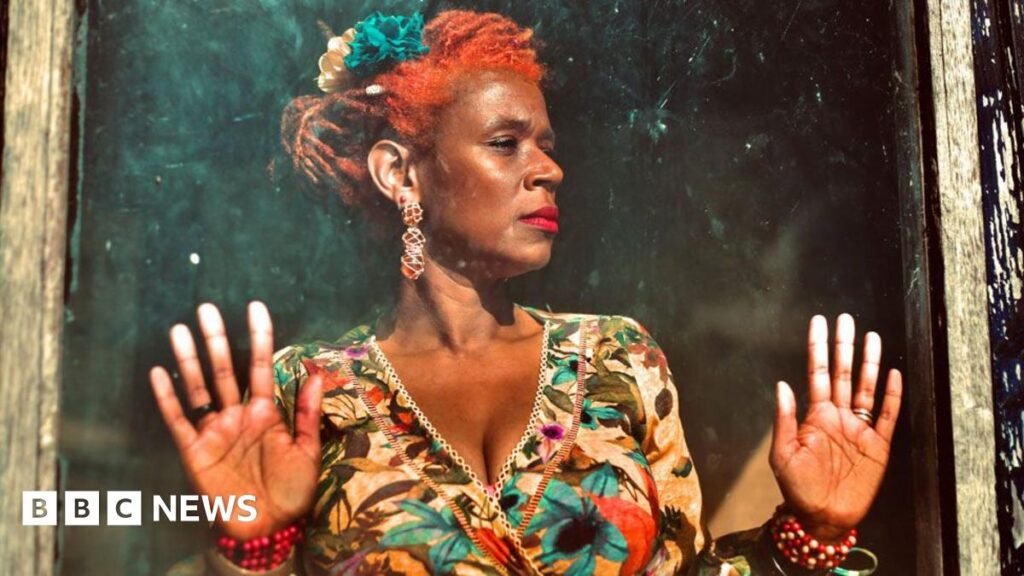Souza represents the spirit of his grandfather in the song. He played the violin – and was known as a great storyteller.
“I was told that if you had to walk with him for miles, you wouldn’t notice the distance because it would be one funny story after another.”
Susa is part of the large Cape Verdean diaspora. She was born in Portugal, now lives in London. According to the International Organization for Migration (IOM), there are about 700,000 Cape Verdeans living abroad – twice as many as at home.
Historically, people have been forced to move for work due to hunger, drought, poverty and lack of opportunity.
This movement fostered a deep, rich tradition of highly distinctive music in the islands, including the melancholic morna, made famous by singer Cesaria Evora and declared a UNESCO Intangible Cultural Heritage of Humanity in 2019.
The composer of many of the songs that made Evora a world star was Francisco Beleza – also known as B. Blades. He revolutionized Morno and was one of the most influential writers, composers and singers in Cape Verde.
According to Souza’s research, he also saw the British presence as more beneficial than the Portuguese – at least for middle-class Cape Verdeans.
Souza’s track Amizadi, a mix of fanana and jazz, was inspired by B Léza’s admiration for the British. He composed morna – Hitler ca ta ganha guerra, ni nada, meaning “Hitler won’t win the war” to show solidarity with the British people during World War II – and even raised money for the British war effort.
Souza found that the ports were “an important center for musicians” who flocked there to learn the music – and the instruments – of visiting foreign sailors.
They mixed them with Cape Verdean rhythms to create new sounds. Mazurka comes from a Polish musical form, and contradance comes from the British quadrille dance.
Early written records of Cape Verdean music are scarce—Portuguese colonists did not document Cape Verdean life and society beyond records of taxes and goods.
They also banned batuque – for being too loud and too African – and funaná because its lyrics challenged social inequality.

